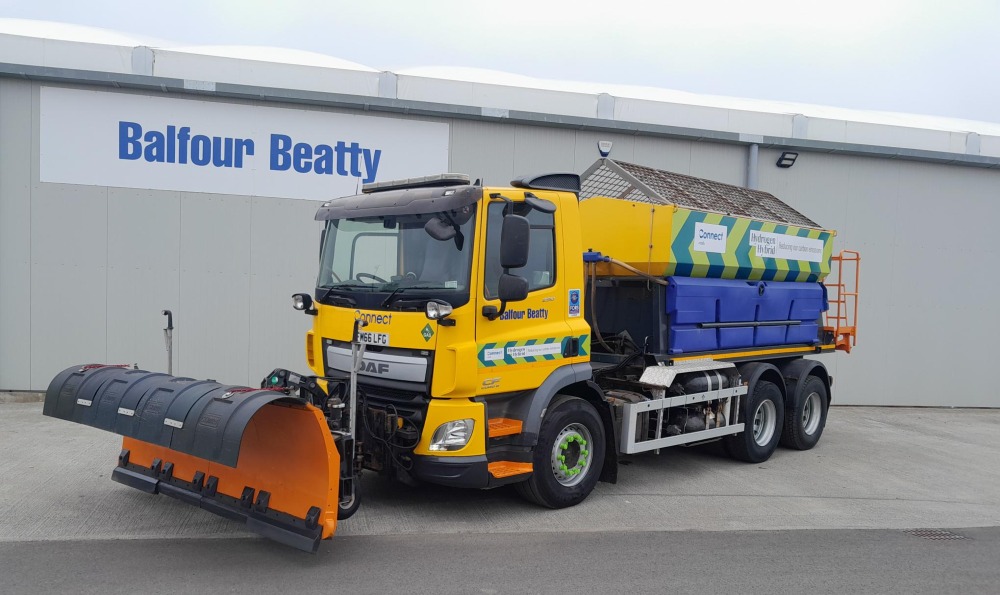
BALFOUR Beatty has marked a milestone in its decarbonisation journey with the launch of its M77 Hydrogen project, described as marking a major step towards establishing Scotland’s first construction hydrogen hub.
The contractor aims to demonstrate the viability of hydrogen technology for heavy plant and equipment, and has vowed to share findings and best practices with the wider industry.
Angela Pllu, environmental sustainability manager at Balfour Beatty, explained, “This ambitious project is the result of over two years of collaboration with ULEMCo, Logan Energy, and PlusZero, supported by both internal funding and £243,000 from the Scottish Government.
“What is the M77 Hydrogen project? In a nutshell, we’re retrofitting heavy vehicles with a hybrid hydrogen system, aiming to achieve a 30% of reduction in carbon emissions. So far, we’ve successfully retrofitted two salt spreader HGVs and one Impact Protection Vehicle (IPV) and have set up green hydrogen supply, onsite storage, and refuelling infrastructure, and are now analysing our road test data to identify further improvements.”
Angela said the results are ‘promising’, with the firm’s spreaders showing around a 26% carbon reduction during road tests, whilst the IPV is also running with reduced emissions, albeit at a slightly lower rate.
“One of the main lessons we have learned is that retrofitting existing vehicles with hydrogen technology is straightforward and effective, providing significant carbon savings,” Angela added. “Vehicles can switch to diesel if hydrogen is unavailable, reducing risks associated with hydrogen supply. Minimal changes are needed for vehicle operation; drivers only require familiarisation with the refuelling process.
“However, it hasn’t all been plain sailing. The main challenge we encountered is the cost of retrofit and the current limited availability of hydrogen refuellers and hydrogen gas. The hydrogen supply landscape in Scotland is expected to improve from 2026, enhancing accessibility.
“Throughout this journey, collaboration with partners like Aberdeen City Council and First Bus Aberdeen has been invaluable, sharing insights from their hydrogen refuelling experiences. Navigating the evolving hydrogen technology market requires flexibility and patience. Information sharing under Non-Disclosure Agreements and aligning safety systems between hydrogen and construction industries were essential yet time-consuming steps.
“As we move forward, we will host quarterly lessons learned sessions and visits to our M77 depot starting in September. We aim to thoroughly test our spreaders throughout the winter maintenance cycle and continue analysing IPV data to optimise fuel displacement.
“Additionally, we plan to leverage funding to support our supply chain in transitioning to hydrogen, sharing risk assessments, cost information, and management plans to ease the adoption process. To ensure the economic sustainability of this transition, we will actively engage with the industry, build new connections, and advocate for competitive green hydrogen fuel rates.
“While others are just beginning to explore the potential of hydrogen technology in construction, we are already leading the way with our M77 Hydrogen project. Our proactive approach, grounded in real-world application and collaboration, sets us apart as pioneers in this field.”








